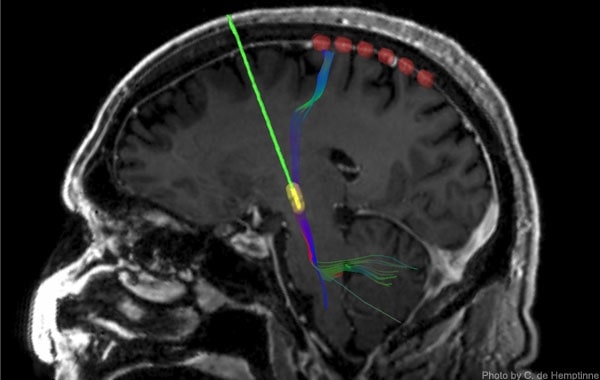Deep Brain Stimulation (DBS) has emerged as a revolutionary treatment for various neurological conditions, offering hope and improved quality of life to countless individuals. However, alongside the promises of DBS, it’s crucial to consider the financial aspects and what to expect from this intricate procedure.
Understanding DBS Surgery
DBS surgery in Mumbai involves the implantation of electrodes into specific brain regions connected to a pulse generator placed beneath the skin of the chest or abdomen. This generator delivers electrical impulses to the brain, effectively modulating abnormal neural activity. DBS is commonly used to treat conditions such as Parkinson’s disease, essential tremor, and dystonia.
Cost Considerations
- Medical Insurance: One of the foremost considerations when contemplating DBS surgery is the financial aspect. The DBS surgery cost in Mumbai varies significantly depending on various factors, including your location, the hospital, surgeon’s fees, and whether you have health insurance. Many health insurance plans may cover some of the costs associated with DBS surgery, but the extent of coverage can vary. It’s essential to contact your insurance provider to understand your specific coverage and any potential out-of-pocket expenses.
- Initial Evaluation: Before undergoing DBS surgery, patients are typically required to undergo a comprehensive evaluation, including medical and neurological assessments, imaging scans, and psychological evaluations. These pre-operative evaluations add to the overall cost of the procedure.
- Surgeon’s Fees: The expertise and reputation of the surgeon performing the DBS surgery can significantly affect the cost. Experienced neurosurgeons may charge higher fees, but their expertise can also enhance the overall success of the procedure.
- Hospital Charges: The hospital stay, operating room fees, and other associated medical expenses must be factored into the overall cost of DBS surgery.
- Device Costs: The DBS system, including the electrodes and the pulse generator, constitutes a substantial portion of the expenses. The specific brand and model of the device can also influence costs.
- Post-Operative Care: Following the surgery, patients require ongoing medical care, including programming and adjustments of the DBS device, which may incur additional costs.
What to Expect from DBS Surgery?
- Thorough Evaluation: Expect a rigorous evaluation before being deemed a suitable candidate for DBS surgery. This evaluation aims to ensure that the potential benefits outweigh the risks and that DBS is an appropriate treatment option for your condition.
- Surgical Procedure: DBS surgery is typically performed under general anesthesia. The surgeon guides the electrodes to the precise brain regions, using real-time imaging to ensure accuracy. The surgery can take several hours, and patients can anticipate a hospital stay of a few days.
- Recovery Period: After DBS surgery, patients may experience temporary side effects such as swelling, pain, or discomfort at the surgical site. It may take several weeks or even months to experience the full benefits of the procedure.
- Programming and Adjustments: The DBS device must be programmed and fine-tuned to optimize its effectiveness following surgery. Patients will work closely with their medical team to determine the appropriate settings.
For many patients, DBS surgery can significantly improve symptoms, such as reduced tremors, improved motor function, and a better overall quality of life. However, it’s essential to have realistic expectations and understand that DBS may not be a cure but rather a treatment to manage symptoms.
FAQ for Deep Brain Stimulation (DBS) Surgery
- What is Deep Brain Stimulation (DBS)?
- DBS is a treatment involving the implantation of electrodes into specific brain regions. These electrodes are connected to a pulse generator placed beneath the skin, which delivers electrical impulses to modulate abnormal neural activity in the brain.
- What conditions can DBS treat?
- DBS is commonly used to treat neurological conditions such as Parkinson’s disease, essential tremor, and dystonia.
- How does DBS surgery work in Mumbai?
- In Mumbai, DBS surgery involves implanting electrodes in the brain and connecting them to a pulse generator placed beneath the skin of the chest or abdomen.
- How much does DBS surgery cost in Mumbai?
- The cost of DBS surgery in Mumbai varies based on factors like location, hospital, surgeon’s fees, and insurance coverage. It’s essential to consult with the hospital and your insurance provider for specific cost details.
- Does medical insurance cover DBS surgery?
- Many health insurance plans may cover some costs of DBS surgery. However, coverage varies, so it’s crucial to contact your insurance provider for specifics.
- What pre-operative evaluations are required before DBS surgery?
- Patients typically undergo a comprehensive evaluation, including medical and neurological assessments, imaging scans, and psychological evaluations.
- How do surgeon’s fees affect the cost of DBS surgery?
- The expertise and reputation of the surgeon can influence the cost. Experienced neurosurgeons may charge higher fees, but their expertise can enhance the procedure’s success.
- What are the other costs associated with DBS surgery?
- Apart from the surgery itself, costs can include hospital charges, device costs, and post-operative care, including programming and adjustments of the DBS device.
- What should patients expect during the DBS surgery?
- DBS surgery is performed under general anesthesia and can take several hours. Surgeons use real-time imaging to guide the electrodes accurately. A hospital stay of a few days is typically required.
- How long is the recovery period after DBS surgery?
- Patients may experience temporary side effects post-surgery. It can take several weeks or months to realize the full benefits of the procedure.
- What post-operative care is required?
- After surgery, patients need ongoing medical care, including programming and adjustments of the DBS device, to optimize its effectiveness.
- Can DBS cure neurological conditions?
- DBS is a treatment to manage symptoms and may significantly improve symptoms for many patients. However, it’s essential to understand that DBS is not a cure but a treatment option.

